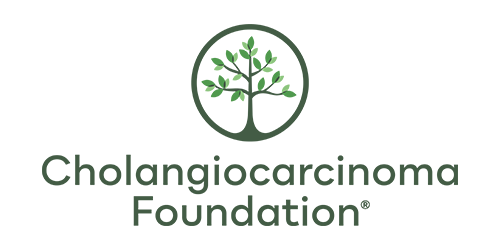Scientific Update: Phase II Study of a Novel Immunotherapy Combination for Cholangiocarcinoma
Kelly Butler
The first line of treatment for unresectable cholangiocarcinoma is gemcitabine plus cisplatin, a combination of two traditional chemotherapies that act by selectively damaging tumor cell DNA. However, recent studies have explored whether antibody-based immunotherapies could be used in addition to or in place of traditional chemotherapies. For example, the landmark phase III TOPAZ-1 study found that adding durvalumab—an immune checkpoint blockade therapy—to gemcitabine and cisplatin increased survival in cholangiocarcinoma patients.
To explore potential immunotherapies further, a recent phase II study investigated the safety and efficacy of toripalimab and anlotinib in treating cholangiocarcinoma. Like durvalumab used in the TOPAZ-1 trial, toripalimab inhibits the interaction between PD-L1 proteins on tumor cells and PD-1 proteins on immune cells to unleash an anti-tumor immune response. The second drug, Anlotinib, is a tyrosine kinase inhibitor that may inhibit signaling pathways required for cancer cell growth.
The phase II toripalimab plus anlotinib study enrolled 15 cholangiocarcinoma patients with locally spread or metastatic disease. While a direct survival comparison was not part of the study, the new immunotherapy combination enabled more prolonged survival than is typically reported with gemcitabine and cisplatin. The safety profile was also acceptable, with most patients reporting adverse events comparable to other cancer treatments. The most common side effects were low platelet count, decreased white blood cell count, and hypertension.
The study also examined molecular markers that could predict response to toripalimab and anlotinib combination therapy. STK11 (LBK1) mutations were more common in tumors that did not respond to the treatment, potentially due to decreased expression of PD-L1 protein on tumor cells. High levels of PD-L1 mean that a tumor will be more sensitive to therapeutically inhibiting the PD-L1/PD-1 interaction required for cell survival. However, the study did not find a direct association between PD-L1 expression and therapy response, likely due to the small sample size. Overall, this phase II study provides promising results and merits further investigation of toripalimab and anlotinib in larger-scale clinical trials.
Reference:
Zhou, Mingzhen, et al. "A phase II study to evaluate the safety and efficacy of anlotinib combined with toripalimab for advanced biliary tract cancer." Clinical & Translational Immunology 13.1 (2024): e1483.
https://onlinelibrary.wiley.com/doi/full/10.1002/cti2.1483

Kelly Butler
Yale School of Medicine, MD program student
